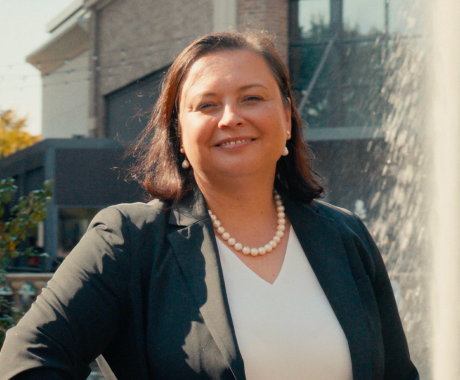Whether it’s refining your business model, mastering new technologies, or discovering strategies to capitalize on the next market surge, Inman Connect New York will prepare you to take bold steps forward. The Next Chapter is about to begin. Be part of it. Join us and thousands of real estate leaders Jan. 22-24, 2025.
Handling objections is often seen as one of the tougher parts of real estate, but it’s also one of the most rewarding. Whether objections relate to pricing, market timing or competition, they’re a chance to showcase your expertise, build trust and set yourself apart.
Here are some of the strategies I use to turn objections into opportunities. Take these approaches to heart, practice them and keep refining your skills.
Shift your perspective: Objections aren’t roadblocks
Many agents dread objections, but they’re a natural part of client interactions. Instead of seeing them as hurdles, view objections as checkpoints that can uncover your client’s deeper concerns. Addressing these thoughtfully will help you foster trust.
Let’s say a seller mentions they’d prefer to wait until spring to list their property. Instead of accepting this without question, try asking, “What are you hoping will change by spring?” or “What conditions are you waiting for that would make it the right time?”
Most importantly, simply ask “Why” until you get to the heart of the matter. Often you will find it is either a misunderstanding of market forces or you will find a creative work-around to the objection.
For example, you can get to work for a seller right away and also avoid limiting their options with buyers in the spring by taking their listing as an off-market exclusive (pocket) and promoting it that way during the “slower” season.
So many of the objections we deal with come back to time and the desire to wait. Wait until the election, wait for prices to change, wait for interest rates to change, wait for consumer confidence to change, wait for supply to change, wait … Wait for what?
I have made some incredible breakthroughs with clients in this mindset with the following question: “How long are you willing to put your life on hold waiting for things that are outside of your control?”
Asking questions to search for hidden fears and look for common ground is not rude or demanding. This increases confidence and gives you an ability to show empathy, guide with patience and prove competence.
Equip yourself with preparation, knowledge and honesty
Preparation is one of your strongest assets in overcoming objections. Know the property, understand the neighborhood dynamics and keep current on the market. The better prepared you are, the more confidently you can address objections as they arise. To stand out, address common objections proactively during your listing presentation.
For instance, if you’re anticipating a commission-related objection, don’t wait for the client to bring it up. Use your presentation to explain the value you bring to the transaction and how your expertise directly benefits them.
Clients appreciate transparency, especially when it comes to the costs involved. The goal is to position yourself as an ally who prioritizes their success, not just as someone aiming for a commission.
Being proactive also involves honesty. Sometimes, clients will ask if you can get a higher price than the market realistically supports, or they may mention another agent who promised them an ideal but unlikely outcome. Here, honesty is key.
For example, I often address this by saying, “Some agents may tell you they can get the price you’re hoping for, but here’s what typically happens: the property sits on the market, and then you face multiple price reductions.”
By being straightforward, you differentiate yourself as a professional who prioritizes the client’s goals and values a relationship built on integrity, not just immediate gains.
Practice objection-handling skills with role-playing
Handling objections effectively comes with practice. One approach I recommend is role-playing with other agents, strategic partners or trusted colleagues. Practice handling objections in a low-pressure setting, so you can refine your responses and improve your delivery.
This exercise not only strengthens your objection-handling skills but also deepens your relationships and creates potential referral opportunities.
Consider organizing a monthly session where you and your peers can tackle common objections together. Practicing hundreds of times builds the confidence needed to handle objections effortlessly and allows you to develop versatile responses for different situations.
Tactics for common objections: Timing, competition and relationships
Here are some specific tactics you can use for common objections:
- Timing objections: When a client wants to wait for the “right time,” ask questions to understand their ideal conditions. Are they waiting for better market conditions or a specific price point? By uncovering their underlying motivation, you can address it directly, providing relevant market data or advising them on the potential risks of waiting.
- Competition and price objections: If a seller mentions that a competing agent promised a higher listing price, address it head-on. Explain the risks of overpricing and why an initial realistic listing price is often the best strategy for a timely sale. Honesty and data can go a long way here.
- Relative or friend is a Realtor: If a client is leaning toward working with a relative or friend, consider offering to be a second opinion. This approach respects their existing relationship while giving you an opportunity to showcase your expertise and value. Sometimes, your professionalism can make a lasting impression, even if they initially choose to go with someone else.
Make objections part of your routine
The most important takeaway is to view objections as an opportunity to showcase your knowledge and dedication. Each objection is a chance to build trust and set yourself apart as a true expert. Make it a habit to prepare for objections in every client meeting, and keep working on your approach.
Nick Schlekeway is the founder of Amherst Madison, a Boise, Idaho-based real estate brokerage. Connect with him on LinkedIn.



















 English (US) ·
English (US) ·